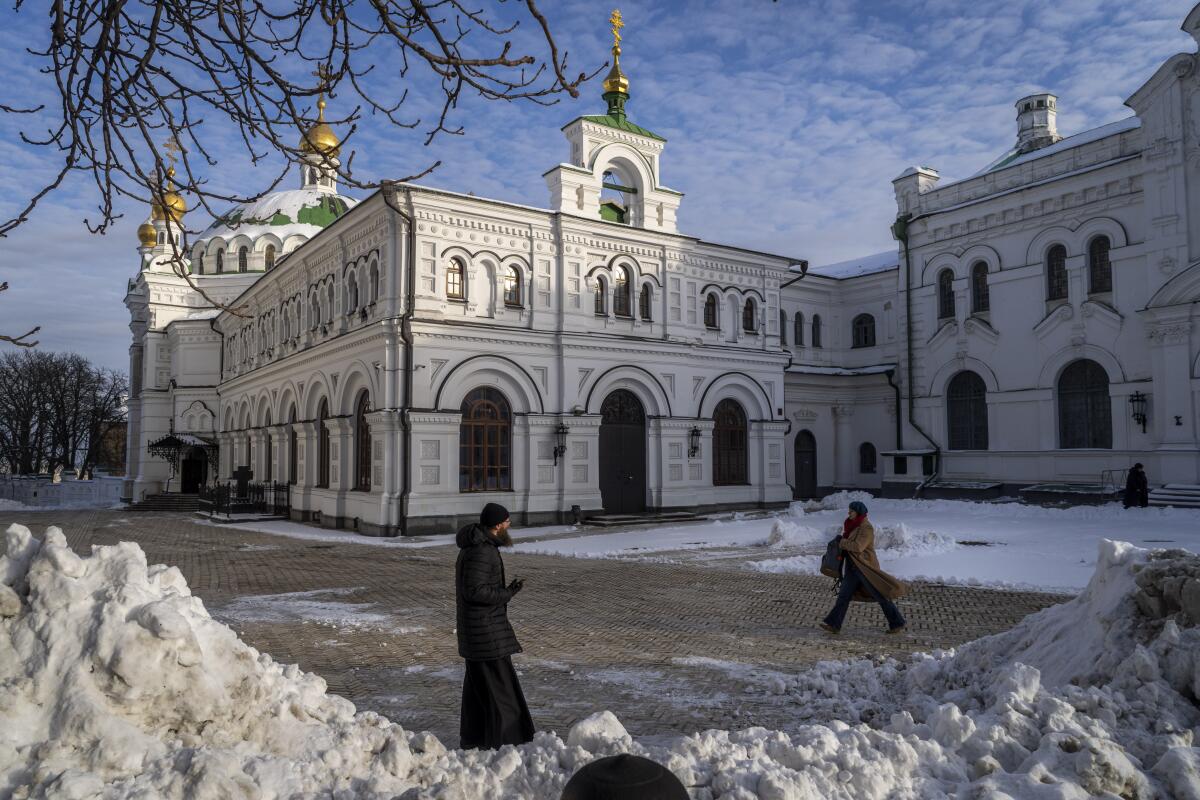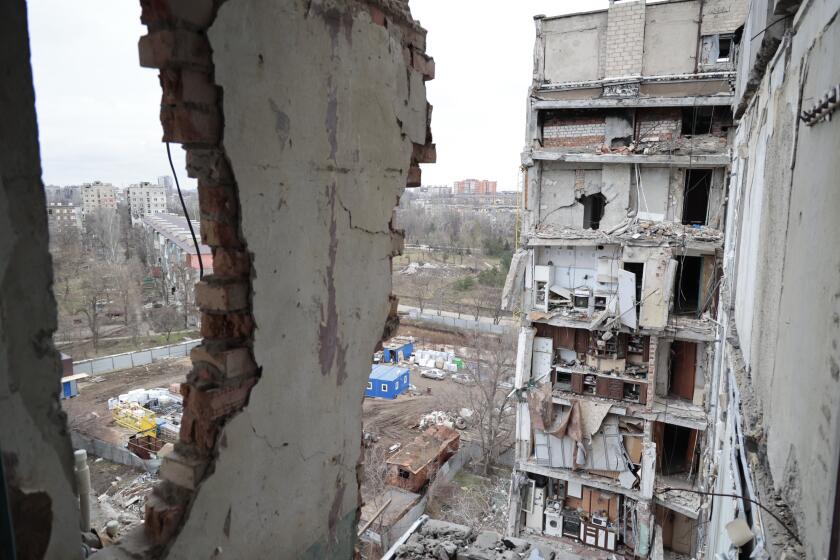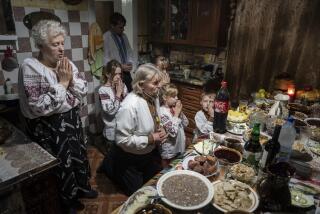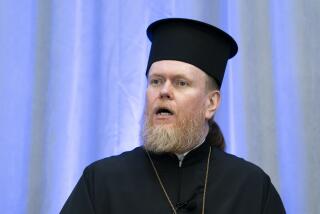Ukraine takes over Kyiv cathedral amid church dispute

- Share via
KYIV, Ukraine — The Ukrainian government has taken the main cathedral of a historic monastery in Kyiv from a denomination previously affiliated with the Russian Orthodox patriarchate and allowed its Ukrainian rival group to use it for Orthodox Christmas services.
The move comes as the long-running tensions between the two denominations have been aggravated by Russia’s war in Ukraine.
Ukrainian Minister of Culture Oleksandr Tkachenko had said Thursday that the Dormition Cathedral and the Refectory Church of the widely revered nearly 1,000-year-old Pechersk Lavra — also known as the Monastery of the Caves — in the Ukrainian capital had been taken over by the state after the lease held by the Ukrainian Orthodox Church, or UOC, expired Dec. 31. The UOC was affiliated with the Russian Orthodox patriarchate up until Moscow’s invasion of Ukraine in February of last year.
On Friday, Tkachenko said that the UOC’s similarly named rival denomination — the Orthodox Church of Ukraine, or OCU — asked for and was granted permission to conduct the service at the cathedral Saturday when Orthodox Christmas is celebrated.
Moscow has ordered its forces to observe a 36-hour holiday cease-fire in Ukraine, but Kyiv has scoffed at the move, and its viability is in doubt.
In 2019, the OCU received recognition from the Ecumenical Patriarch of Constantinople. But the Russian and most other Orthodox patriarchates have refused to accept that formalized split from the Russian church.
The UOC, by contrast, remained loyal to the Moscow patriarch, as it had done since the 17th century. But it too broke with the Russian patriarchate after the invasion of Ukraine, declaring independence from Moscow. It gave the Russian patriarchate a liturgical cold shoulder by dropping recognition of Moscow Patriarch Kirill as its leader in public worship and blessing its own sacramental oil instead of using Moscow’s supply.
But Ukrainian security agencies have claimed that the UOC continues to maintain close ties with Moscow despite its declaration of independence. The agencies have conducted numerous raids of the church’s holy sites, posting photos of rubles, Russian passports and leaflets with messages from Kirill.
Prominent UOC leaders have rejected the allegations of ties with Moscow, insisting that they have loyally supported Ukraine from the start of the war and that a government crackdown would only hand a propaganda coup to Russia.
More to Read
Sign up for Essential California
The most important California stories and recommendations in your inbox every morning.
You may occasionally receive promotional content from the Los Angeles Times.











